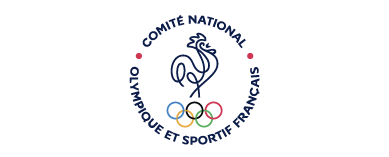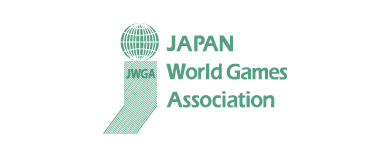Competitions in Tug of War have been held at every edition of TWG since the inaugural Games in 1981. The sport has its origins in the depths of history, and is well-known as a competitive sport in very many countries all over the world. It’s popular with both men and women, in mixed and single-sex teams.
In this edition of Chosen for Chengdu we focus on one of the most successful women in the sport, Christel Covens from Belgium: she has travelled extensively to compete in women’s and mixed teams up to world championship level and has won many medals. She has already attended two editions of TWG – as a spectator – and is now very excited to have qualified as a competitor in 2025.
Both strength and skill are needed for success in Tug of War, with the need to adapt to different surfaces, weather conditions and opponents. A huge amount of training and planning goes into creating a team that can pull to its maximum potential. Read more about the special nature of this sport in the interview below.
1. Congratulations on your achievements at world championship level! Please tell us a bit more about the events in 2023 and 2024, the classes you competed in and how you achieved these excellent results.
Since 2021 we have been training with two big goals: top-3 places with our own club in the open competition in World and European championships, and the selection for TWG with the national mixed team (4 men, 4 women).
In 2023 at the World Championships it stopped for us in the quarter-final (in the open competition, so with our own club) after a hard fight against the team who would become world champion that year. We were very disappointed at that moment, but it also gave us more motivation to train even harder ... because we really believed that we could get in the top 3! In the national competition in the World Championships in 2023 we came 6th. With the women’s team we got the silver medal in the open competition last year, together with some Dutch women.
This year we first had a big international tournament in the Netherlands. There we came 3rd with our mixed team. That was a good test, and it gave us hope and motivation for the World Championships later that year. We had 2 big goals for the World Championships of 2024: a medal with our own club in the open competition, and selection for The World Games in the national competition. In the open competition we had to pull against all the teams who were a possible candidate for the stage ... in the quarter-final and the semi-final they were hard pulls, but we won! In the final against a team from Germany it was close in the second pull, but they were too strong for us; the silver medal was for us.
In the national competition one of our opponents in the group was TWG winner in 2022: England. A big test for us. We won all our pulls in the group. The last pull in the group was against Germany; the first pull we lost, but the second pull we won. In the semi-finals we had to pull against the Netherlands, the country who beat us in 2023 for place 5. This time we won, after 3 pulls, and so we were in the final! Totally unexpected, but it went really well that day. In the final we had to pull against Switzerland. They were unfortunately stronger than us, so then it was again silver. But the selection for TWG was more than guaranteed!
2. How and when did you start competing in Tug of War?
I started in 2009, first with a complete women’s team that we started ourselves with some friends. That was a nice period, but the results were not that important in the beginning. After some years I started pulling at FJ Retie, a team who trained closer to where I work. Then I also started with the mixed competition, because we always trained with men and women. After a first medal at the World Championship in South Africa in 2018 (with a women’s team) the motivation got even bigger. We have a nice team now and we motivate each other to achieve big goals together!
3. What training do you do, to be in perfect condition for a big competition?
In winter we train once a week with the team. We start with pulling against a weight, and then we move on to pulling against each other, with different teams. In January and February we compete in a competition in the Netherlands in the sand inside a building, because it's still winter then. That's a hard competition, but really good training! In that period we also start training twice a week. Besides the training sessions I also go running, cycling and doing fitness. In April the national competition starts, and we also start to train more together with other teams for better and harder training. In May we always have an international tournament which is always like a big test for the World Championships later in the season. From June we start with 3 trainings a week. In summer we always have hard trainings to get in perfect condition for the World Championships ...
4. Are there special tactics that you discuss and practice, especially for a mixed team (without giving too much away!) – and how is the team order on the rope decided, i.e. who is closest to the opposition and who is at the back?
Every mixed team has its own order on the rope. It depends on what kind of pullers you have. Some people pull better on position 1 or 2, others are better at the back. We have known each other already so long and so well, that we know who has to pull on which position. The tactics differ according to who your opponent is, what kind of ground you have, ... so it is really difficult to say. And the best practice is: a lot of training :) Competing with the team together in the national competition, competing together on training against others teams, again and again.
5. How do other activities and interests fit in alongside training and competing in Tug of War?
Because I like running and cycling, it is easy to use that for my general condition for Tug of War. With Tug of War you always get to know a lot of other people from all over the world, and that's something I really like about the sport. In the open competition on European and World championships, you can compete with other nationalities, which is always a nice experience. We also have at least 2 international tournaments each year, so we visit a lot of countries because of that. I like travelling, so for me that's a really good thing about the sport!
The International World Games Association (IWGA) is a non-profit-making international sports organisation recognised and supported by the International Olympic Committee. The IWGA comprises 40 International Member Sports Federations. It administers and promotes The World Games (TWG), a multi-sport event held every four years that features around 35 sports on its programme. The next edition of TWG will be in Chengdu (CHN) from 7-17 August 2025. 5,000 participants from more than 100 countries are expected to take part in this 12th edition. The latest Games were hosted by Birmingham, Alabama (USA).
For more information, please contact the IWGA Media and Communication team: [email protected], Tel: +41 21 311 12 97, or visit our website.




















